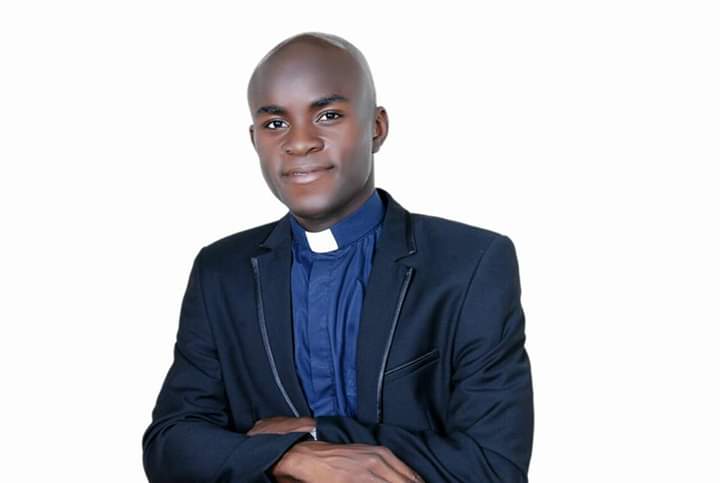First Reading: Leviticus 19:1-2.17-18/Responsorial Psalm: Ps. 103:1-2.3-4.8.10.12-13 (R. 8a) Second Reading: I Corinthians 3:16-23/Gospel Accl.: I John 2:5/Gospel: Matthew 5:38-48
THEME: PERFECT AS THE FATHER
Last week, Jesus begun what we may call Categorical Reversals by authoritatively instructing us to choose divine commands over human wisdom. Today, he continues in the same line of thought. He shows that he is his own authority. Particularly, he overturns and corrects the status quo when he stresses: “You have heard that it was said, ‘You shall love your neighbour and hate your enemy.’ But I say to you, love your enemies and pray for those who persecute you, so that you may be sons [and daughters] of your Father who is in heaven…” (Mt. 5:43-45). This is divine wisdom counteracting human wisdom, and we are expected to inculcate it in our lives.
The Psalmist harps on this to teach us how we can become perfect and holy like God: when we express gratitude for the benefits which come our way; forgive and show compassion; and exhibit self-restraint and richness in mercy (cf. Ps. 103:2-10). The usual and common existential situations we find in life and in our relationships, call for such actions. However, we often do the opposite. So, we are called today to attend to the normal day-to-day activities with the special touch of unconquerable love and benevolence. This is what we call holiness. St. Teresa of Calcutta (Mother Teresa) defines holiness as doing the ordinary things in extraordinary ways. To be holy is to be dedicated or consecrated to God. It means being set apart for a religious purpose. This purpose plays out not as a show of religiosity but genuine love for neighbour! It is love expressed as service to humanity with God in view. It is Christian love, and perfection which can make us God-like.
The people we meet daily in our lives whether at home or the workplace, gym or stadium; in school or the market, the church or place of worship; on the streets or aboard a vehicle – wherever life finds us – should see the image and character of God in us. For this reason, in the first reading, Moses reiterates: “You shall be holy; for I the Lord your God am holy. You shall not hate your brother [and sister] in your heart, but you shall reason with your neighbour, lest you bear sin because of him [and her]. You shall not take vengeance or bear any grudge against the sons [and daughters] of your own people, but you shall love your neighbour as yourself…” (Lev. 19:2,17-18). We are the children of a God whose very name is Mercy and Love (Pope Francis). So, let us show in our words and actions that we are his true sons and daughters!
These precepts above, border on our relationships with people; they concern the ordinary situations we encounter in our daily lives and how we treat one another. To discourage the sin of revenge, Jesus handpicks the oldest law in the world, the ancient human law, Lex Talionis, that is, the law of retaliation or tit for tat: ‘An eye for an eye and a tooth for a tooth…’ (Ex. 21:23-25; Lev. 24:19-20; Deut. 19:20-21; Mt. 5:38). This law was found in the earliest known code of laws, the Code of Hammurabi, who reigned as king of Babylon from 2285 to 2242 BC. Jesus takes this human law and corrects it. Even though the Lex Talionis was intended for mercy and to guide Judges on how to arbitrate cases, Jesus obliterates the very principle of that law because revenge, no matter how it is controlled or restricted, is inconsistent with the Christian life. Forgiveness and reconciliation must always be sought. The Indian politician, Mahatma Gandhi, said: “An eye for an eye makes the whole world blind! Certainly, Jesus is not literarily advocating for the attitude of passive non-violence to evil, but summoning us to non-retaliation and non-resentment. He is calling us to a love ethic which is proactive against all forms of evil. It is unconditional love!
So, how can we live holy lives? St. Paul sees the church as a temple in which the Holy Spirit dwells. When divisions are allowed in, the Spirit cannot operate. When bitterness is introduced into it, love leaves it, for where charity and love are, there God is (ubi caritas et amor, Deus ibi est)! That is why St. Paul says in the second reading: “If anyone destroys God’s temple, God will destroy him. For God’s temple is holy, and that temple you are” (I cor. 3:17). For this reason, Origen teaches: “We are most of all God’s temple when we prepare ourselves to receive the Holy Spirit.” The Spirit of God is the principle of unity who binds us together as children of God (Unitatis Redintegratio, #2; Decree on ecumenism, Vatican II Council). He is the Sanctifier Blest, the one who purifies us with his gentle prods, perfect guidance and wise counsel. He is the Advocate who stands by our side to defend us like a lawyer. Filled with the Spirit, we become agents of unity to bear fruits of love, joy, peace, patience, kindness, goodness, faithfulness, gentleness and self-control (cf. Gal. 5:22-23). Like our Blessed Mother, Mary, we should preserve ourselves as the temple of the Spirit and the sanctuary of God’s presence (cf. Lk. 1:35; I Cor. 3:17).
Beloved in Christ, worldly wisdom tells us to be mean to those who are mean to us; to pay back evil for evil; to insult those who insult us; to wish evil on those who wish us evil. Human wisdom thinks humility is humiliation while pride is power. Worldly wisdom encourages us to accept philosophies and ideologies which have no basis in God but deny eternal truths which bring salvation. Worldly wisdom attractively packages for us to follow so-called celebrities, stars, hall[1]of-famers and other personalities who may have achieved so much in life but so little or none in Christ. Those who have achieved so much in holiness, love and charity are least remembered and highlighted for imitation. Human wisdom believes in exclusivism, the looking down on others as inferior, second class citizens and nonentities. Inclusivity is thought to be a weakness! Division and dissensions are preferred to unity and consent. These are the things Jesus asks us to think about with the mind of God and to see them with the eyes of God, so that, in choosing the way of God, we may become perfect like him. The world sometimes makes a person believe they know it all, that, they are wise! However, the only way to knowledge is to confess our ignorance! This is what Paul means when he says: “…let him become a fool that he may become wise” (I Cor. 3:18).
Dearest in Christ, it is only when Christ lives in our hearts, that we are able to live as perfect Children of a perfect God. To be perfect is to fulfil the purpose for which we were created, namely, to be the image of God; to love and serve him (cf. Gen. 1:26). With zeal, conscious effort and prayer, we can kill bitterness and hatred. Unconquerable benevolence seeks the highest good of one another. Christian perfection is when we love as God loves and forgives as God forgives. Happy Sunday and may God richly bless us! Remember to aspire to be: #Perfect-As-The-Father#







